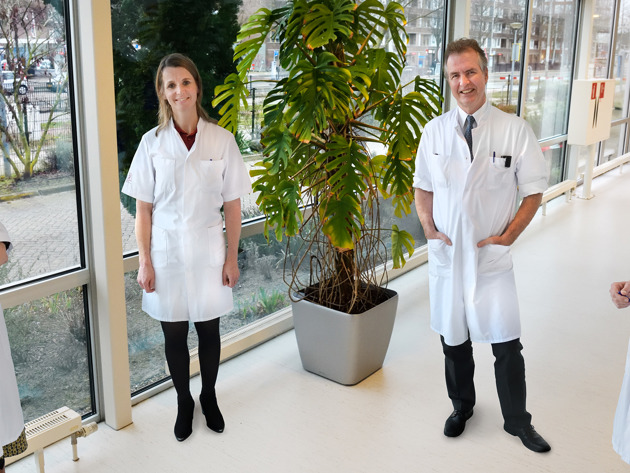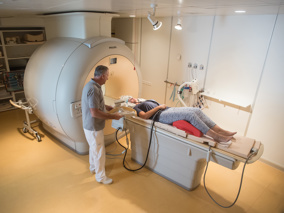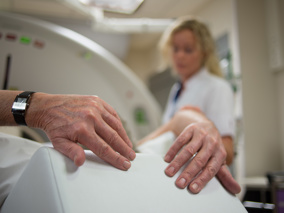Rectal cancer
Rectal cancer is cancer in the rectum. That is the last part of the large intestine. It is a common type of cancer. This type of cancer is also called rectal cancer or rectal carcinoma.
Rectal cancer is most common in people between the ages of 60 and 70. But younger people can also get it. If it occurs in people under the age of 50, the disease is often hereditary.
On this page you can read about the symptoms, examinations and treatment of rectal cancer.
More information about rectal cancer
Causes of rectal cancer
We don't always know why someone gets rectal cancer. However, there are factors that increase the chance:
- Unhealthy lifestyle
- Heredity
- Chronic inflammation of the intestines
Symptoms of rectal cancer
Symptoms of rectal cancer may include:
- Blood in the stool
- A change in the stool pattern
- Constipation
- Diarrhoea
- A feeling of fullness
- Less appetite for food
- Pain or cramping in the abdomen
- Pain when sitting
- Fatigue or dizziness
Recurrent rectal cancer
After treatment, the rectal cancer may come back. This happens to 5 to 10 out of 100 people. The cancer then often returns in the pelvis. This is called recurrent rectal cancer.
We sometimes see this during a check-up at the outpatient clinic. Sometimes you notice it yourself, for example by:
- blood in the stool
- Pelvic pain
- a palpable swelling
- difficulty with defecation
Heredity and rectal cancer
Typically, rectal cancer is not hereditary. Sometimes it is. In some families, colorectal cancer (colorectal or rectal cancer) is common. The doctor then suggests investigating whether there is a hereditary predisposition. Hereditary predisposition means that you are more likely to develop colon cancer than other people.
Some hereditary diseases increase the risk of colon cancer:
The doctor can detect these diseases with genetic testing. The doctor then checks, for example, whether there is an error in the APC gene. Or to microsatellite instability (MSI).
Sometimes there is no clear reason why many people in a family develop colon cancer. Then family members will receive regular bowel examinations.
Waiting
We want to inform you as well as possible about the waiting time per condition. We do this based on a prognosis of the current waiting list. The waiting time can vary from patient to patient for various reasons. Your attending physician will give you more information during your outpatient consultation.
-
7 days
First appointment
This is approximately how long it will take until you have your first appointment
-
4 days
Rapid diagnostics
This is approximately how long it will take before you can start rapid diagnostics at the NKI
-
8 days
Second opinion
This is approximately how long it will take before you come in for a second opinion at the NKI
 nl
nl



